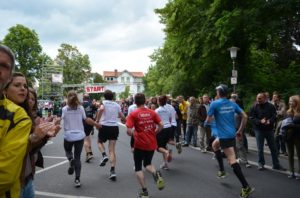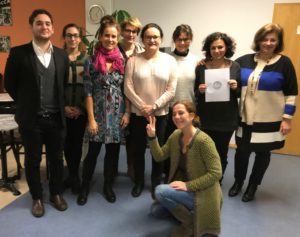 The VIM team is happy to present its first newsletter.
The VIM team is happy to present its first newsletter.
If you want to get an overview of what VIM stands for and what its main activities and aspired outcomes will be – get the newsletter here.
 The VIM team is happy to present its first newsletter.
The VIM team is happy to present its first newsletter.
If you want to get an overview of what VIM stands for and what its main activities and aspired outcomes will be – get the newsletter here.
 Each partner is currently scheduling qualitative interviews with educational and social professionals. The aim is to find out the learning needs of migrant adults in terms of health and healthy lifestyle, most relevant health education topics and suitable methodological approaches that are likely to succeed with hard-to-reach target groups.
Each partner is currently scheduling qualitative interviews with educational and social professionals. The aim is to find out the learning needs of migrant adults in terms of health and healthy lifestyle, most relevant health education topics and suitable methodological approaches that are likely to succeed with hard-to-reach target groups.
If you are interested to get involved and give an interview, please address one of the VIM partners.
 On 11./12. December 2017 the VIM partners met in Göttingen for the kick-off meeting. The main purpose of the meeting was to get to know to each other and to plan in detail the first project activities.
On 11./12. December 2017 the VIM partners met in Göttingen for the kick-off meeting. The main purpose of the meeting was to get to know to each other and to plan in detail the first project activities.
The partners discussed in detail the approach of the stocktaking and needs analysis phase and brainstormed possible topics for the micro-learning units that will be developed. Apart from healthy lifestyle related topics also topics such as home sickness, depression, intercultural reflection about body and health as well as trustbuilding in the healthcare system of the host country were listed. Currently the long list of possible topics is being clustered and will be further consolidated by means of expert interviews in the partner countries.
 VIM stands for Vitality Interventions for Migrants and builds on the experience gained in “Health Box”, a very successful LLP-funded project (www.healthbox.eu). Health Box developed micro-learning units on crucial healthy-lifestyle topics that were integrated in other training contexts (e.g. labour market training). This approach shall now be transferred to the target group of refugees and migrants.
VIM stands for Vitality Interventions for Migrants and builds on the experience gained in “Health Box”, a very successful LLP-funded project (www.healthbox.eu). Health Box developed micro-learning units on crucial healthy-lifestyle topics that were integrated in other training contexts (e.g. labour market training). This approach shall now be transferred to the target group of refugees and migrants.
Staying in good health, adopting healthy life styles and being informed about the health system of the host country as well as having confidence to make use of it are pre-requisites of successful integration of refugees and newly arrived migrants.